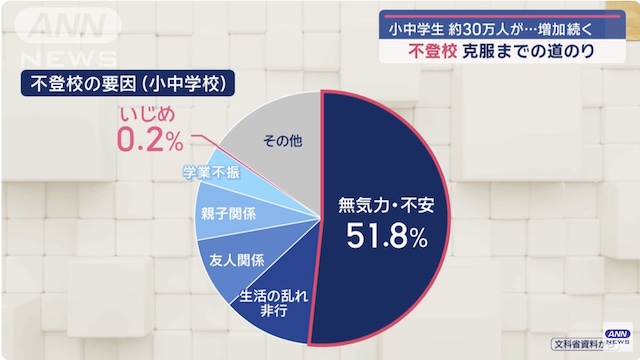TOKYO, May 06 (News On Japan) - School absenteeism among Japanese elementary and middle school students has surged to approximately 300,000, with many students struggling to return after long holidays like Golden Week. In this context, a sixth-grade girl who overcame school absence shared her story.

As Golden Week draws to a close, many parents worry about their children falling into school absenteeism, especially during the transition from long holidays. In the 2022 academic year, the number of elementary and middle school students experiencing absenteeism increased by 50,000 to approximately 300,000, the highest number on record.
A sixth-grade girl living in Tokyo experienced school absence during her third term in the fourth grade. She recounted how she felt attacked and afraid after being criticized by a male classmate. This experience led to her becoming reluctant to attend school.
The girl's class was divided over classroom management, and the boys directed their frustration toward her. Her mother explained that her daughter was shocked when she was singled out during class.
Despite efforts by the school to address the issue through increased access to counselors, the girl’s mother found that getting her daughter to attend school was difficult when she was adamant about not going.
According to data from the Ministry of Education, Culture, Sports, Science and Technology, the leading cause of school absence is "lack of motivation or anxiety," accounting for over 50% of cases, while "bullying" constitutes only 0.2%.
The girl's journey to recovery began when her mother came across an organization called "Sudachi," which aims to guide students back to school within three weeks through parental involvement.
Sudachi's representative, Ryotaro Ogawa, emphasized the importance of focusing on the family rather than the school. The organization promotes limiting digital usage within the household and encouraging family activities, which led to improved communication and strengthened parent-child relationships.
The girl ultimately returned to school two months after her initial absence, shortly after her mother sought Sudachi's help. Now, the girl views school in a new light and appreciates it more than before.
Source: ANN















